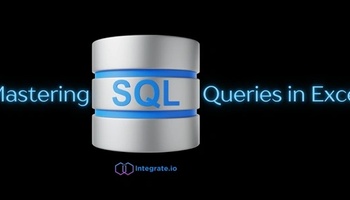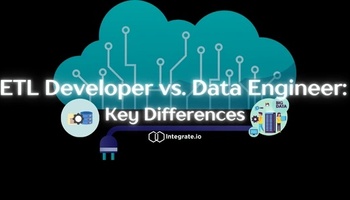APIs are a quick and easy way to create applications that can connect to other services. APIs provide an interface for developers, allowing them to leverage their programming skills in one language (Python) and use it with any service they want. Python is a popular choice for APIs because of the high level of abstraction available and its extensive library support.
What Is an API?
The term "API" refers to an interface or a layer that allows two applications to communicate without understanding how they work. APIs are implemented in different ways, but the concept is that APIs provide a layer of abstraction between two software components. APIs allow developers to use an interface instead of writing new code or using another language altogether. They can be scaled easily and used across applications without having to rewrite them for each new project you work on.
While APIs are beneficial, there are many different options to choose from. Here is a breakdown of the six best APIs for Python developers.
1. Django REST Framework
Django REST Framework (or DRF) is a powerful tool for building APIs with Django. With its extensive documentation and well-defined APIs, it's an excellent option for creating APIs in both Python and JavaScript. The Django framework provides full support to ensure that APIs are secure, flexible, and highly customizable. Using the built-in serializers provided by the Django REST framework, you can create different forms of your model objects easily without having to rework any existing code or write new lines of code.
You can also extend DRF to fit your needs if these default implementations do not suit all of your requirements. If you're looking for high-performance APIs but don't have much experience writing APIs from scratch, then consider giving this API framework a try.
2. Turbo Gears
Turbo Gears is a lightweight API framework that can be used with both Python and JavaScript APIs. Turbo Gears is a full-stack framework for rapid development that allows you to build a database-driven, ready-to-extend application in minutes.
One of Turbo Gears' primary goals is speed. Because of this, it implements a lot of optimizations behind the scenes to provide high-performance APIs. If you're looking for an easy-to-use toolkit, then give this library a try.
3. Flask Restful
The Flask Restful plugin is a module for the Flask framework that allows developers to create Rest APIs quickly. Because it includes a very tiny module, it is well known for producing micro web services.
The APIs that are created with the Flask Restful plugin has a lightweight feel, making it easy to build APIs quickly and implement them into your existing apps. It also allows APIs to be organized in modules for more complex APIs that comprise multiple endpoints. If you're looking for an option where you can customize every aspect of your API, then consider giving this framework a try.
4. FastAPI
One of the most popular Python API development frameworks is FastAPI. It is a comprehensive web framework package with everything you need. Using FastAPI, you may generate code 200% to 300% faster than with other Python APIs' development frameworks. FastAPI includes APIs for authentication, validation, and error handling.
Asynchronous JavaScript and XML (ASGI) are the foundation for FastAPI. It's designed to create asynchronous web applications.
FastAPI is an excellent option if you're looking to get started with APIs development right away by providing a default implementation that already works out of the box without having to write much code yourself.
5. Bottle
Bottle is a lightweight and simple WSGI micro web framework for Python. It's a single file module that has no additional requirements other than the Python Standard Library.
Bottle APIs are easy to write because they're built for simplicity. There is no routing, so APIs can be as simple or complex as necessary. Bottle APIs also have a flexible structure that allows you to organize APIs into sub-modules and middleware components if needed.
6. Falcon
Falcon is a web framework that is used to create dependable and high-performance backend services and microservices. The API endpoints of Falcon are defined using an object-oriented and class-based interface.
Falcon is a good option if you're looking for APIs that are easy to test and maintain. The APIs created with Falcon has a simple design that makes them lightweight and straightforward without too much overhead or boilerplate code. If you need something that has low usage of your system resources but is also high performance, then consider giving this toolkit a try.
Integrate.io to Ensure Safe Transfers Through APIs
APIs serve many purposes, and the creation of them using different frameworks is very important for Python developers.
APIs can be used for many different purposes such as sharing data across apps and linking databases, allowing software developers to get their app connected with other APIs to create a streamlined workflow that is easy to use.
Using the Integrate.io ETL when moving data through APIs is a great way to streamline the process and ensure a secure and efficient transfer of data.
If you are ready to learn more about the Integrate.io ETL, schedule a call with one of our experts today.









